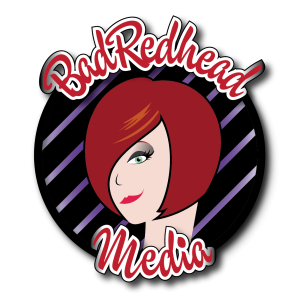Do You Have an Effective Book Marketing Strategy by @SmartAuthors
Are you one of those authors who feels overwhelmed by book marketing? Do you feel exhausted by the long list of things you have to do to promote your book, frustrated that none of them actually seem to work and fed up with everything costing money?
If you are, I’m here to tell you: you’re doing book marketing all wrong. It doesn’t need to be overwhelming or exhausting, not if you use an effective strategy.
You Have Book Marketing All Wrong
Not a day goes by without me seeing another author complaining about book marketing – the time it takes, the ineffectiveness of it all or the icky feelings they have about it because they feel pushy or salesy.
It frustrates me and breaks my heart in equal measure because it really doesn’t need to be like this.
There are two things that you need to understand about marketing:
- Book marketing is not about persuading or convincing someone to buy from you. It’s about connecting with your ideal reader and forming a genuine relationship with them.
- A marketing strategy is essential for reaching your goals. But a strategy should not be confused with tactics.
I have talked about what marketing is and isn’t many times before, so I won’t go into that again here. But if you want to learn how to feel better about marketing, I suggest you check out my post on The 3 Simple Principles Behind an Author Platform.
Instead, I want to focus on strategy, and how it differs from tactics. be.
Where the Heck Are You Going? = Strategy
A strategy is the overall plan you put in place to reach your goals. The most obvious objective is to increase book sales, but there are a number of other goals you may have that will ultimately lead to an increase in sales. For example, growing an email list or improving brand awareness.
So before choosing your strategy, you must first set your objectives. This is like tapping an address into your sat nav (satellite navigation). It doesn’t matter how clever the device is, if it doesn’t know where you want to go, it can’t tell you the best way to get there. But once you give it a place to head, it will work out your best route – that’s your strategy.
How Will You Get There? = Tactics
Tactics, on the other hand, are the tools you will use to reach your goals. Continuing with the sat nav analogy, this is the decision you make about whether to head to your destination on foot or go by car.
If you don’t know where you’re going, you can’t make a sensible decision how to get there. Whether on foot or in a car, you will simply travel in circles in the hope of reaching your destination, not that you even know where that is. A tactic is pointless if you don’t know why you’re using it and it’s not tied to a specific goal.
For example, if you’re ‘doing’ Twitter, why are you using it? What is the ultimate goal? Is it to sell books (not a good idea), is it to build a community of fans? Or is it to connect with other authors?
Twitter may or may not be a good tactic for you, but if you haven’t tied it into your overall strategy and linked it to a specific objective, it’s very unlikely to be effective.
Choose Your Game Plan
Your strategy is your game plan. When deciding on a strategy some things to consider are:
- Do you want to build a platform?
- Do you want to use paid advertising?
- Will you be wide or KU exclusive?
For some authors, they know they want to build a following and plan to blog, use social media and send regular emails.
Other authors want to keep things as simple as possible and only use the marketing tools offered by the retailers, perhaps alongside some paid advertising.
Both are valid strategies, but they will require different tactics to implement them.
If you have plenty of budget but very limited time, you may prefer to use paid advertising methods. If you have more time than money, then free tools such as blogging may suit you better.
Some authors write faster than others. Your strategy may be to publish every 4-6 weeks, but another author may find publishing twice a year is plenty. Again, neither option is wrong, but each author will need to use different tactics to promote their new releases.
It is unwise to try to copy another author’s marketing tactics if they have a different publishing schedule to you, or they have a bigger or smaller following, or even if they are writing in a different genre. You need to find the strategy that works for you and your readers, and that strategy will dictate your choice of tactics.

Select the Best Tools for the Job
Tactics are all the tools and techniques available to you that can help you to reach your overall marketing objectives. It should be clear by now that not every author should use every tool and some will be more effective than others depending on what you are trying to achieve.
Some examples of tactics are:
- Email list
- Advertising & Promotions
- Social media
- Blogs/Vlogs/Podcasts
- Press/PR
Within each of the categories above, there are multiple options. For example, social media includes Facebook, Twitter, Instagram, Pinterest, GoodReads and many, many more. Even if you choose to use social media, you will next need to decide which networks to be active. If you don’t use a tool effectively, you may as well not use it at all, so only take on only as many as you can manage well.
I see authors discussing tactics all the time with no real understanding about how to use them or why. For example, I see authors ask how to start email lists, as well as what to send and how often. These writers are starting a list because everyone says that a list is essential. I don’t disagree, but how effective will a list be if you don’t know why you’re growing one or how to communicate with the people who signed up to receive emails from you?
Before you start using any new tactic, ask yourself why you’re using it and what the goal is. Then think realistically about how it will fit into your overall strategy, and how it will help you reach your main marketing objectives.
If you don’t know the answer, it’s time to either learn more about the tactic, or to move on and stick with what is already working well.
No Strategy = No Idea
Using a bunch of random tactics is not a marketing strategy and is unlikely to help you reach your author goals.
Without a strategy, you have no idea of what you’re trying to achieve. You don’t know why you’re doing the things you’re doing and have no idea of how effective they are. That’s what leads to frustration and exhaustion, and it’s also what leads to ineffective book marketing.
As you add in more tactics because you can’t see enough progress with the ones you’re already using, you experience overwhelm and burnout.
Having a well thought out strategy means you can achieve more by doing less and can track the results of your marketing activity. Book marketing will always involve hard work, but you are more likely to reach your goals more quickly and have more fun getting there if you follow a clear strategy.
Your Best Next Steps
Hopefully, I’ve explained the difference between strategy and tactics and now you’re fired up to get your marketing strategy in place. Here’s a quick recap of how to go about it:
- Decide on your objectives
- Choose how you will reach those objectives (your strategy)
- Select the tools that will best help you implement the strategy (your tactics)
- Continually assess the progress being made towards your goals
- Amend your tactics as necessary.
Want more help with your book marketing strategy? Book a free Book Marketing Breakthrough Session with me to talk through your challenges and what your best next step should be.
rocket
Day 18 Giveaway
Comment below to win a one-hour consultation with Belinda on marketing strategy (Value: $197)!
Belinda Griffin…
…is a Book Marketing Success Coach teaching indie authors who struggle with book marketing how to attract their ideal readers who will fall in love with them, so that they can confidently achieve much greater exposure and sales. Belinda runs SmartAuthorsLab where authors embrace experimentation, to see what works for them.
Grab your FREE guide: How to get your book noticed with fantastic results! & follow Belinda on Twitter @SmartAuthors.


Love this article. This nails it in terms of building strategies and setting goals for what you want to achieve. I think many people, whether they are writing a book or trying to get in shape set out with vague goals and get discouraged. Please do a second guest blog! Following!
Hi Rachel and Belinda, Oh how I need to win the one hour consultation!
Great post Belinda! I see so many authors just throwing together random strategies, I love how you focus us all onto something that is reaching towards a specific goal.
Excellent info. I keep learning. Thanks, Rachel.
This article has some great points. I am still trying to develop a strategy that works for me.
Fantastic piece. The biggest takeaway for me was your point about what a mistake it is to employ the tactics of authors who publish on a different schedule. It’s so easy to get caught up in so-and-so did X, Y, and Z and they sold a zillion books, but it rarely seems to work. Thanks for that!
Incredibly important info! Thanks for breaking it down!
Thanks, Rachel and Belinda, for a thought-provoking post. Developing a marketing plan is harder and more daunting to me than writing my book! The tips in the post will definitely help.
Great tips. It’s all very sound – but I still seem to be failing. So, yeah, I need that one-hour consultation too.
Thank you for this blog post, I really need to organise myself so I am definitely going to implement all of this into my planning. x
Thanks for this article. Thanks to Rachel, I realized awhile ago I needed to attract people interested in what I’m interested in to my blog, not other writers. I started doing that and while my social media followers jumped, my readers didn’t because I wasn’t posting enough! Since last winter, I finally got that. I’ve decided 2018 is the year I start to actually post more blog content and grow my email list and start a newsletter. It’s worked pretty well so far. The more posts, the more likes, the more views. Also, I was in the dark about SEO and now I’m turning that around. Now I’m just trying to figure out if I should self-publish or keep submitting to agents (who keep asking for work and then passing, ugh.) Anyway, marketing is a long road but I’m working on it little by little! Thanks again.
This article was dead on. As an author just starting out in marketing, I hear a lot of “do this” and “you HAVE to do that” without much guidance on the whys and hows. I need to decide on my strategy and make sure my tactics are supporting my goals.
Thanks!
Thanks Daniella! You’re absolutely right, vague goals mean it’s easy to let them slip, because you were never too concrete about them in the first place. Anyone can say “I want to sell more books”. But if you say “I want to sell 100 books”, or 1,000 or 10,000, now that’s a whole different thing!
I’m always amazed at how many people don’t understand the difference between strategy and tactics. That’s partly because there are so many blog posts referring to things like advertising as strategies, and not enough blog posts making the difference clear.
Or maybe it’s because tactics are easier …
Anyway, this post is a great reference. Thank you.